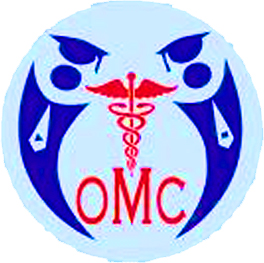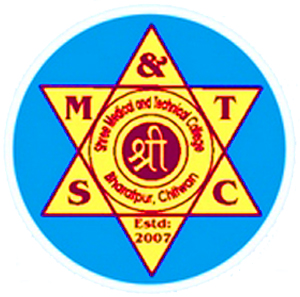Overview
Chitwan Medical College (CMC), Bharatpur, Chitwan, Offers Bachelor of Public Health (BPH)
The Chitwan Medical College offers a Bachelor in Public Health (BPH), affiliated with Tribhuvan University, and is a four-year course that produces professional public health specialists. These individuals are equipped to lead community health initiatives and guide grassroots-level health workers, ensuring the effective delivery of health care services as envisioned by the government.
Course Overview
The BPH program is designed to develop skilled public health professionals who can address public health challenges through evidence-based practices. The curriculum incorporates theoretical knowledge and practical skills, enabling graduates to lead and manage local, national, and global health programs.
Program Duration
The Bachelor in Public Health is a four-year program divided into eight semesters. Each semester includes approximately 20 weeks of academic work, including lectures, practical sessions, and fieldwork. The final semester focuses on internships and a research project.
Eligibility Criteria
To be eligible for the BPH program, candidates must meet one of the following criteria:
-
Aspirants must have studied Physics, Chemistry, and Biology (PCB) from a recognized institution and passed with at least 50 percent or 2.4 CGPA at the proficiency certificate level or Grade 12 Science group.
-
Candidates from A-level or similar programs must have studied Physics, Chemistry, and Biology and have a minimum CGPA of 50 percent or 2.4.
-
AspirantsThe aspirant must have achieved at least 50% overall marks in the Health Science Proficiency Certificate Level or Diploma (General Medicine, Medical Lab Technology, Ophthalmic Science, Dental Science, Pharmacy, Radiography, Ayurveda, or Physiotherapy) and be registered with the respective council.
Admission Process
The admission process includes:
-
Entrance Examination: Candidates must pass the integrated admission process with a minimum of 50 percentile marks. The format consists of multiple-choice questions, with one mark awarded for correct answers and a deduction of 0.25 marks for incorrect answers.
-
Document Submission: Successful candidates must submit original and photocopies of the following documents:
-
Certificate of qualification, transcripts, and character certificates from Grade 12 and SEE or equivalent.
-
Citizenship or passport copy.
-
Admit card from the entrance examination.
-
Documents supporting reservation claims (if applicable).
-
Certificate of equivalence for foreign qualifications.
Course Outline
The BPH curriculum is structured to include core and elective subjects, practical training, and research work. The program emphasizes:
-
Public health sciences
-
Biostatistics
-
Epidemiology
-
Health promotion and education
-
Environmental and occupational health
-
Family and reproductive health
-
Health economics and financing
-
Research Methodology
Subjects Offered
-
Core Subjects:
-
Epidemiology
-
Biostatistics
-
Public Health Administration
-
Environmental Health
-
Family Health and Reproductive Health
-
Health Promotion and Education
-
Elective Subjects:
-
Health Informatics
-
Global Health
-
Project Management
Program Objectives
The primary objectives of the BPH program are:
-
To enable advanced knowledge and practical skills in primary health care.
-
To develop competencies in health program design, implementation, and evaluation.
-
To train students to analyze public health data and conduct research.
-
To prepare graduates for public health education, services, and research leadership roles.
Teaching Methodology
The teaching methodology combines traditional lectures with interactive and practical approaches. Students engage in:
-
Problem-based learning
-
Case studies
-
Group discussions
-
Field visits
-
Research projects
-
Internships
This multifaceted approach ensures that students gain theoretical knowledge and hands-on experience.
Learning Outcomes
Upon completing the BPH program, graduates will be able to:
-
Analyze and address public health challenges using evidence-based approaches.
-
Design, implement, and evaluate health programs.
-
Conduct and interpret public health research.
-
Demonstrate leadership and management skills in public health settings.
-
Promote health awareness and disease prevention in communities.
Future Scope
Graduates of the BPH program can:
-
Pursue higher education, such as a Master’s in Public Health (MPH) or related fields.
-
Engage in public health research and policy-making.
-
Contribute to global health initiatives and programs.
Career Prospects
Potential career paths include:
-
Public health officer
-
Health program coordinator
-
Epidemiologist
-
Health educator
-
Research Associate
-
Policy Analyst
Scholarship Opportunities
CMC provides scholarships are available based on merit, need, and specific government provisions. Students can explore:
-
National Medical Education Scholarships
-
Institutional scholarships
-
Need-based financial aid
Fees Structure
The fees for the BPH program are determined by the Medical Education Commission (MEC). Prospective students should consult the college’s admissions office for detailed information.
Extracurricular and Co-Curricular Activities
Students participate in:
-
Health camps and community outreach programs.
-
Workshops on public health tools and technologies.
-
Seminars and conferences on current public health issues.
Real-World Application
The program emphasizes practical learning through internships, fieldwork, and community health projects. Students gain exposure to real-world challenges and learn to apply theoretical knowledge effectively.
Sustainability and Social Impact
The BPH program focuses on sustainable health practices and addresses social determinants of health. Graduates are trained to promote equitable health care and contribute to societal well-being.
Skill Development
Students develop:
-
Analytical and critical thinking skills.
-
Communication and advocacy skills.
-
Leadership and team management capabilities.
-
Research and data interpretation expertise.
Global Perspective
The curriculum includes global health concepts, enabling graduates to contribute to international health initiatives and collaborate with global organizations.
Facilities and Support
Students benefit from:
-
Well-equipped classrooms and laboratories
-
Access to libraries with extensive resources
-
Dedicated faculty and mentorship programs
-
Internship and placement support
Why Choose the BPH Program?
The BPH program offers a comprehensive curriculum, practical training, and exposure to real-world health challenges. Graduates are well-prepared for leadership roles in public health.
Is the BPH Program Right for You?
The BPH program is an excellent choice for improving community health and addressing public health challenges. It equips students with the skills and knowledge to make a meaningful impact.
What is the Future of the BPH Program?
The demand for public health professionals is rapidly growing globally. The BPH program prepares graduates for rewarding careers in health systems, research, and policy-making.
How to Improve Your Study of Public Health Education
To excel in public health education, students should:
-
Stay updated with current health issues and policies.
-
Participate actively in fieldwork and internships.
-
Develop intense research and analytical skills.
-
Engage in community health projects and workshops.
-
Build a professional network through seminars and conferences.
Conclusion
The Bachelor of Public Health program at Chitwan Medical College provides students with the knowledge, skills, and practical experience needed to excel in public health. By focusing on leadership, research, and community service, this program is ideal for those looking to impact public health outcomes significantly.















